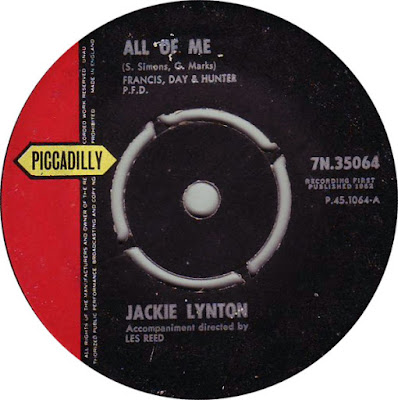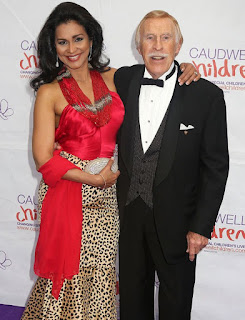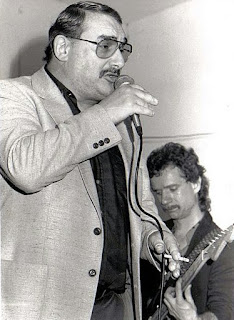Willie Bobo was the stage name of William Correa (February 28, 1934 – September 15, 1983), was one of the great Latin percussionists of his time, a relentless swinger on the congas and timbales, a flamboyant showman onstage, and an engaging
if modestly endowed singer. He also made serious inroads into the pop, R&B and straight jazz worlds, and he always said that his favourite song was Antonio Carlos Jobim's "Dindi."
William Correa grew up in Spanish Harlem, New York City. He
began his professional career as a dancer at the age of 12. Bobo began playing
the bongos at age 14, only to find himself performing with Perez Prado a year
later, studying with Mongo Santamaria while serving as his translator, and
joining Tito Puente for a four-year stint at age 19.
He was given his stage name as a teen-ager by Mary Lou Williams, the pianist, who took to calling him Bobo - Spanish for life of the party - during a recording session.
He was given his stage name as a teen-ager by Mary Lou Williams, the pianist, who took to calling him Bobo - Spanish for life of the party - during a recording session.
His first major exposure was when he joined George
Shearing's band on the album The Shearing Spell. After leaving Shearing, Cal
Tjader asked Bobo and Santamaría to become part of the Cal Tjader Modern Mambo
Quintet, who released several albums as the mambo craze reached fever pitch in
the late 1950s. Reuniting with his mentor Santamaría in 1960, the pair released
the album Sabroso! for the Fantasy label. Bobo later formed his own group with
Clark Terry and Joe Farrell as sidemen releasing Do That Thing/Guajira with
Tico and Bobo's Beat and Let's Go Bobo for Roulette, without achieving huge
penetration.
 Recording for Verve in the mid-'60s, Bobo achieved his
highest solo visibility with albums that enlivened pop hits of the day with
Latin rhythms, spelled by sauntering originals like "Spanish Grease, "
the title track being perhaps his most well known tune. Highly successful at
this attempt, Bobo released a further six albums with Verve which included the
sauntering "Fried Neck Bones and Some Home Fries."
Recording for Verve in the mid-'60s, Bobo achieved his
highest solo visibility with albums that enlivened pop hits of the day with
Latin rhythms, spelled by sauntering originals like "Spanish Grease, "
the title track being perhaps his most well known tune. Highly successful at
this attempt, Bobo released a further six albums with Verve which included the
sauntering "Fried Neck Bones and Some Home Fries."
In addition, Bobo played on innumerable sessions in New
York, recording with artists like Miles Davis, Cannonball Adderley,
Herbie Hancock, Wes Montgomery, Chico Hamilton and Sonny Stitt. In the early 1970s, he moved out to Los Angeles. He again met up with his longtime friend Richard Sanchez Sr. and his son Richard Jr. and began recording in the studio. Bobo then worked as a session musician for Carlos Santana among others, as well as being a regular in the band for Bill Cosby's variety show Cos. Santana covered Willie Bobo's Latin song "Evil Ways" in the early 1970s. In the late 1970s, Bobo recorded albums for Blue Note and Columbia Records.
Herbie Hancock, Wes Montgomery, Chico Hamilton and Sonny Stitt. In the early 1970s, he moved out to Los Angeles. He again met up with his longtime friend Richard Sanchez Sr. and his son Richard Jr. and began recording in the studio. Bobo then worked as a session musician for Carlos Santana among others, as well as being a regular in the band for Bill Cosby's variety show Cos. Santana covered Willie Bobo's Latin song "Evil Ways" in the early 1970s. In the late 1970s, Bobo recorded albums for Blue Note and Columbia Records.
Despite the weakened condition due to cancer which was diagnosed in November 1982, Bubo continued to perform. One of Bobo's last appearances, only three months before his death from cancer, was at the 1983 Playboy Jazz Festival where he reunited with Santamaria for the first time in 15 years. He was 49 years old.
(Edited from Wikipedia & AllMusic)























































